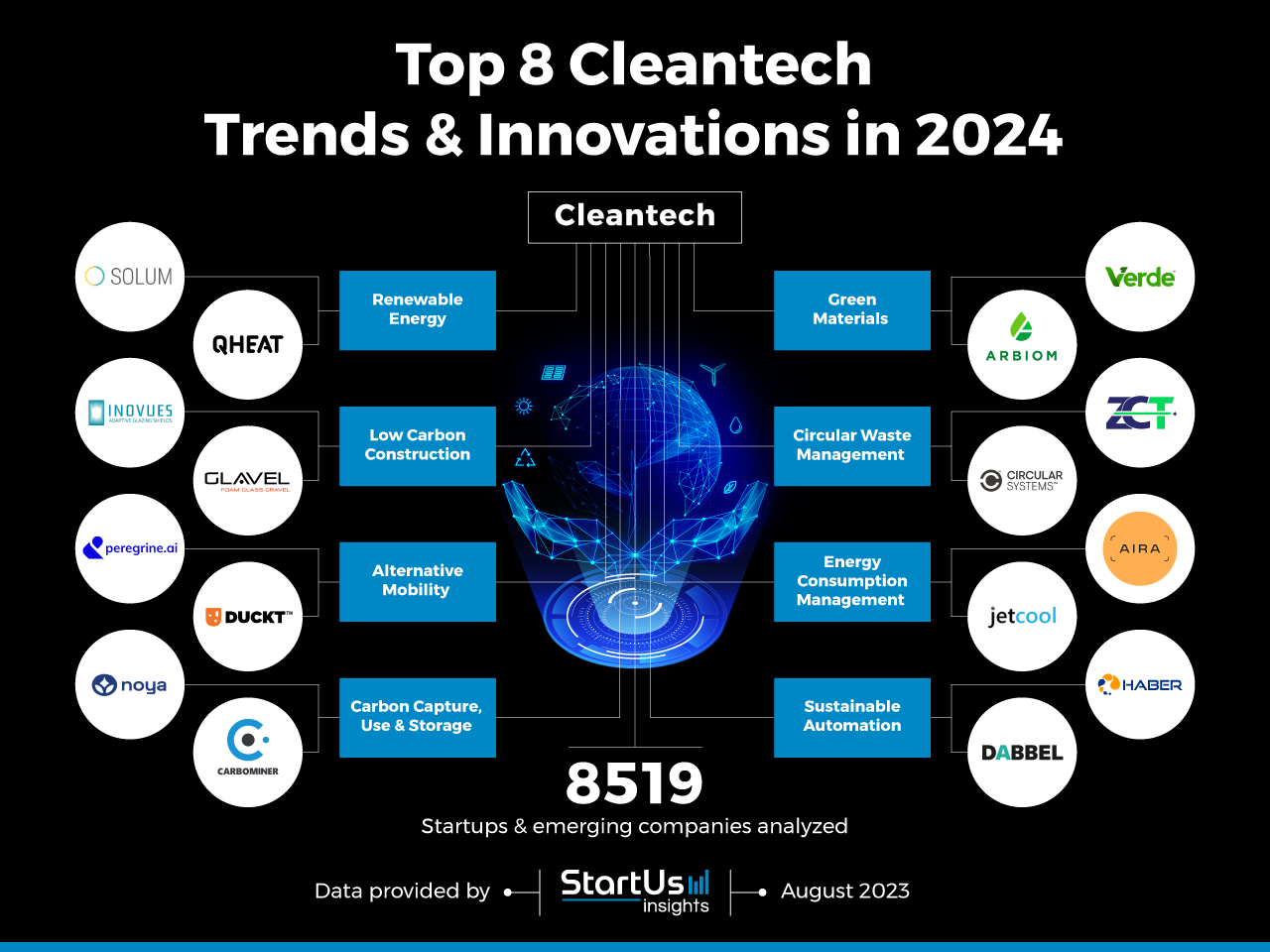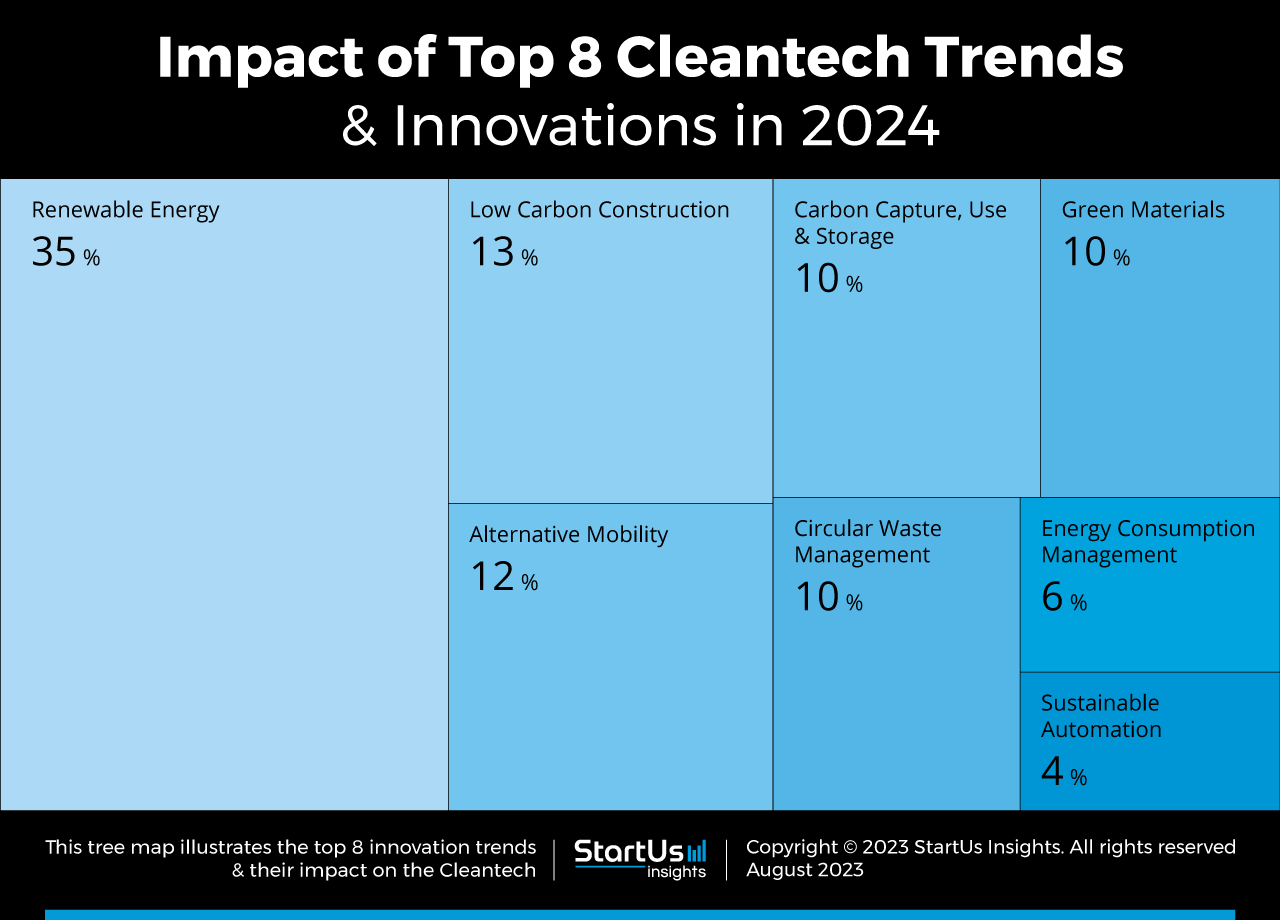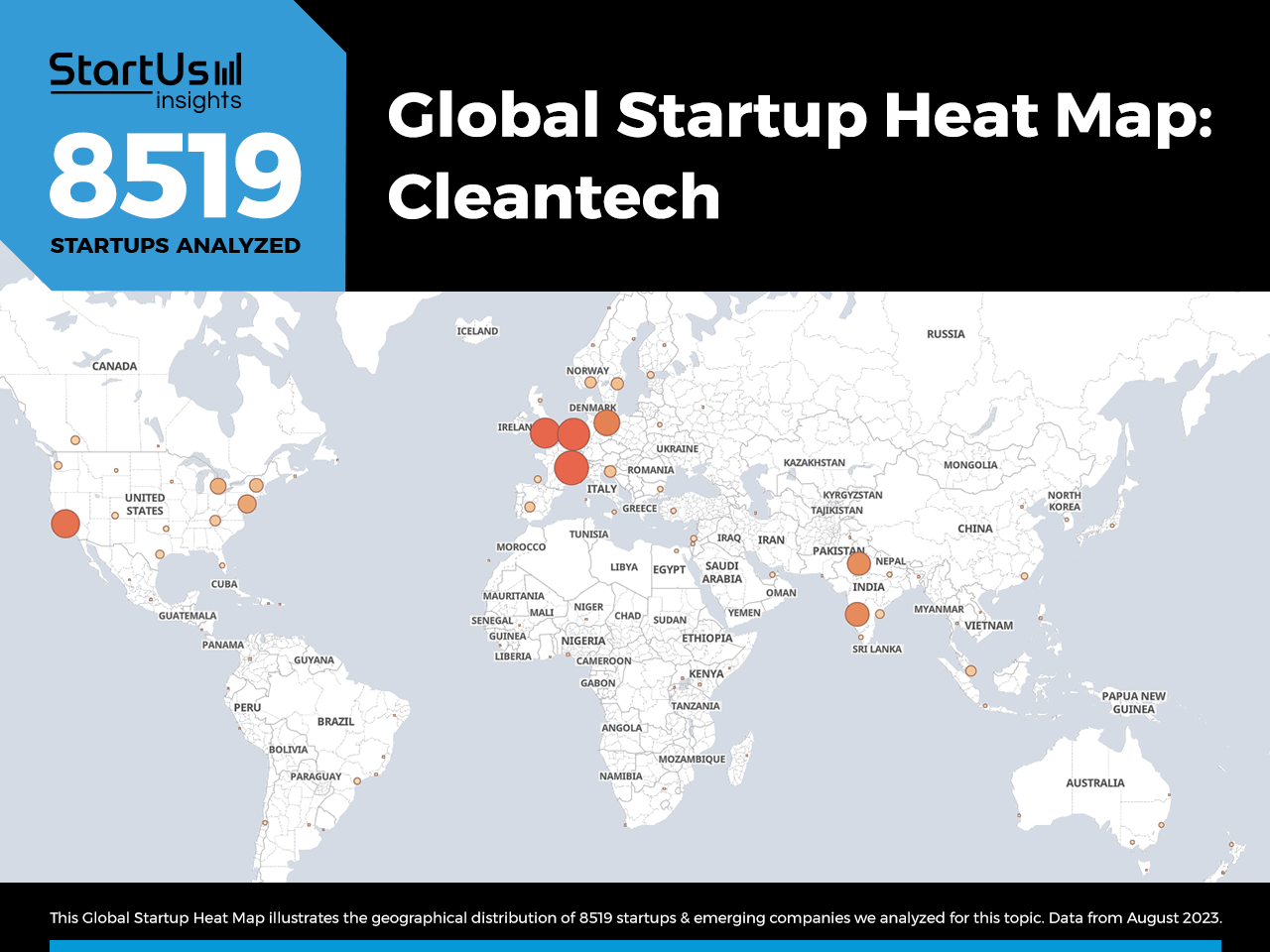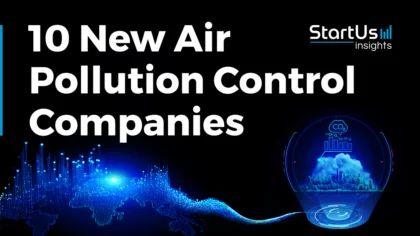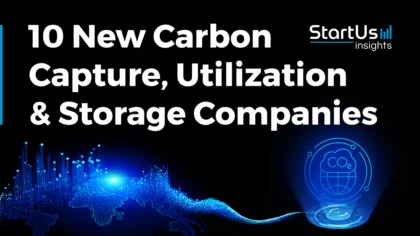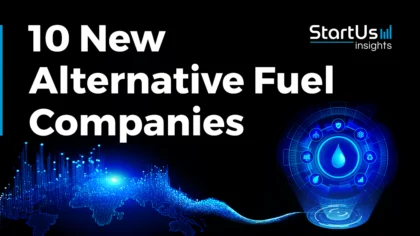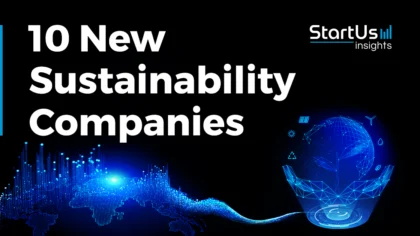With global emissions rising at an alarming rate, cities and companies are transitioning towards cleaner resources, fuels, energy, and technologies. These innovations enable processes, products, and services that reduce negative environmental impacts. For cleaner operations, cleantech companies optimize energy usage wherever possible, from large-scale applications to an individual level. For example, home automation empowers consumers to monitor and control electricity consumption and reduce their carbon footprint. Switching to renewable energy also reduces the burden on fossil-based and polluting energy sources like coal and petroleum significantly, making it the first among cleantech trends.
In addition, the Internet of Things (IoT) facilitates environmental conservation activities by embedding sensors in the forest and cities, either on trees or underground, to alert for unusual signs like landslides and forest fires. Clean technologies are enabling breakthroughs across industries like mobility, construction, and manufacturing by replacing energy-intensive processes and products, thus lowering their carbon footprints.
This article was published in November 2021 and updated in August 2023.
Innovation Map outlines the Top 8 Cleantech Trends & 16 Promising Startups
For this in-depth research on the top clean technology trends and startups, we analyzed a sample of 8519 global startups & scaleups. This data-driven research provides innovation intelligence that helps you improve strategic decision-making by giving you an overview of emerging technologies in the cleantech industry. In the Cleantech Innovation Map, you get a comprehensive overview of the innovation trends & startups that impact your company.
Top 10 Cleantech Trends in 2024
- Renewable Energy
- Low Carbon Construction
- Alternative Mobility
- Carbon Capture, Use & Storage
- Green Materials
- Circular Waste Management
- Energy Consumption Management
- Sustainable Automation
These insights are derived by working with our Big Data & Artificial Intelligence-powered StartUs Insights Discovery Platform, covering 3 790 000+ startups & scaleups globally. As the world’s largest resource for data on emerging companies, the SaaS platform enables you to identify relevant technologies and industry trends quickly & exhaustively.
Tree Map reveals the Impact of the Top 8 Cleantech Trends
Based on the Cleantech Innovation Map, the Tree Map below illustrates the impact of the Top 8 Cleantech Trends. As governments and independent organizations support monitoring industrial carbon emissions, clean technology comapnies are working towards sustainable modifications of their business processes. The most prevalent trend in cleantech is renewable energy integration. Innovations in the field are enabling the mass production of clean energy with minimum wastage and expenses.
Low-carbon construction and alternative mobility solutions are gaining popularity and tackling emissions in their respective industries. These include using renewable fuels and low-carbon construction materials as well as vehicles that run on electricity or hydrogen. Additionally, carbon capture, utilization, and storage (CCUS), energy consumption management, and green materials are other major trends. They can be incorporated independently or in conjunction with applications in broader sectors like sustainable automation.
Global Startup Heat Map covers 8519 Cleantech Startups & Scaleups
The Global Startup Heat Map below highlights the global distribution of the 8519 exemplary cleantech startups & scaleups that we analyzed for this research. Created through the StartUs Insights Discovery Platform, the Heat Map reveals that the US is home to most of these companies while we also observe increased activity in Western Europe and India.
Below, you get to meet 16 out of these 8519 promising startups & scaleups as well as the solutions they develop. These 16 startups were hand-picked based on criteria such as founding year, location, funding raised, and more. Depending on your specific needs, your top picks might look entirely different.
Interested to explore all 8000+ cleantech startups & scaleups?
Top 8 Cleantech Trends for 2024
1. Renewable Energy
At the present rates of fossil fuel depletion, there is a pressing need for energy transition to alternative sources that will last longer without causing damaging the environment. Renewable energy sources like solar, wind, geothermal, and wave energy are the most popular alternatives. Various industries employ renewable fuels to make their operations cleaner and more sustainable. Moreover, startups are driving sustainable innovations using renewable energy systems to optimize large-scale high-carbon operations.
Solum develops Solar Pavements
Spanish startup Solum develops solar pavements for charging micro-mobility vehicles. The startup’s solar pavements feature high-energy photovoltaic (PV) cells that generate energy for charging vehicles. In addition, the modular plug & play installation allows the charging stations to be customized according to the area available. They are installable in offices, education buildings, public spaces, and shopping malls.
QHeat provides Geothermal Energy
Finnish startup QHeat utilizes geothermal energy to control the temperature inside large indoor spaces. The startup’s deep wells, at almost 2-3 kilometers deep, are much deeper than traditional ones. Since temperatures at this level are much higher, they are able to produce a lot more energy. These wells are also used for energy storage by recharging the bedrock during seasons with higher energy availability, like summer. This promotes an efficient circular energy economy with minimum emissions for real estate owners.
2. Low-Carbon Construction
The construction industry is notorious for releasing harmful pollutants into the environment and for using highly wasteful materials in its processes. However, the construction sector is transitioning to more sustainable and circular practices. Low-carbon construction caters to making the building process less harmful and more in sync with the living nature, including plant walls or exteriors which facilitate cooling.
Startups are also incorporating cleaner and low carbon construction materials in homes and public spaces to limit energy consumption without compromising on key quality parameters. In addition, they are developing green building materials such as alternatives like hemp-based concrete, bamboo flooring, and green insulation to replace polluting materials.
INOVUES provides Smart Windows
INOVUES is a US-based startup advancing smart window technology. Its compact and lightweight solution, Glazing Shield, is non-intrusive and easy to retrofit. Moreover, it offers a built-in control unit and photovoltaic module to convert the absorbed light into electrical energy. This way, INOVUES reduces energy consumption for heating and cooling during peak energy demand periods.
Glavel develops a Gravel Alternative
The US-based startup Glavel provides a sustainable alternative for gravel using recycled glass. The startup’s product, Foam Glass Gravel, displays the physical properties of glass in a lightweight and load-bearing aggregate. Moreover, it is rot-, water-, and fire-resistant with thermally insulating attributes. With a compressive strength of 116 psi and thermal insulation of R1.7 per compacted inch, Foam Glass Gravel finds applications in green roofs and sub-slab insulation.
3. Alternative Mobility
The mobility sector is making great leaps in cleantech with developments such as electric vehicles (EVs). Types of electric vehicles include battery vehicles, hybrid vehicles, hyperloop tech, and plug-in hybrid vehicles, among others. Furthermore, startups are testing different combinations of sustainable fuels to fully replace conventional automobile fuels.
One example of a traditional fuel alternative is green hydrogen derived by splitting water into hydrogen and oxygen using low-carbon energy sources. The mobility sector is also incorporating other eco-friendly technologies like EV charging stations and AI-powered green GPS systems to facilitate decarbonization.
DUCKT builds Micromobility Charging Stations
Estonian startup DUCKT develops micromobility charging and docking stations. The startup’s plug-and-play modular adapters and the Internet of Things (IoT) chargers use durable materials in their design. They are fully automated and compatible with all mainstream micromobility EVs like bikes and scooters. In addition, DUCKT infrastructure makes public spaces more organized and secure while offering a sustainable charging solution for urban locations.
Peregrine.ai offers Sustainable Telematics
German startup Peregrine.ai uses video telematics to protect vehicles and drivers from high-risk situations on the roads. The startup’s solution, Vision SDK, analyzes real-time traffic data on users’ devices and stores only the relevant data to create insights for stakeholders.
Moreover, the captured images are anonymized to ensure privacy. Most importantly, Peregrine’s innovation not only reduces the occurrence of accidents but also offers optimized routes, thus reducing greenhouse gas (GHG) emissions through safe and efficient fuel use.
4. Carbon Capture, Use & Storage
Carbon capture, use, and storage (CCUS) is the process of capturing carbon emissions for storage or upcycling the captured carbon, thereby reversing its negative impacts. These techniques ensure clean disposal of industrial carbon dioxide (CO2) which would otherwise pollute the environment. Innovations in this area include artificial photosynthesis using biosolar leaves and phytoplankton-based solutions that mimic the chemical process of photosynthesis.
CCUS advancements are also tackling bovine methane emissions, one of the largest contributors to greenhouse gas emissions. Besides this, startups are developing carbon capture and sequestration technologies to upcycle carbon into various useful materials like carbon-based plastics and biochar.
Noya enables Carbon Capture
US-based startup Noya develops a carbon capture system for industrial applications. The startup’s retrofit CO2 capture equipment enables direct air capture (DAC) in cooling towers. It is then sequestered, sold, or upcycled into high-value products. Moreover, the startup collaborates with industrial companies without any fees and offers carbon credits for their partners. This accelerates the adoption of on-site carbon capture.
Carbominer provides a Direct Air Capture System
Carbominer is a Ukrainian startup that provides direct air capture technology. On installation, the startup’s capturing module traps CO2 from the ambient air without any need for liquefaction or transportation of the gas. The captured CO2 finds use in greenhouses where it improves plant growth and provides greenhouse operators with a cost-effective zero-carbon energy source.

5. Circular Waste Management
Safe and sustainable waste management lowers the impact on the environment. Although waste management is an old concept, startups are innovating to either dispose of garbage as effectively as possible or upcycle it into useful materials to improve the product life cycle. Waste-to-energy solutions incorporate processes like anaerobic digestion, pyrolysis, incineration, and gasification to convert waste into fuel.
Other trends include wastewater treatment methods such as greywater recycling, rainwater harvesting, and electro-coagulation systems. Chemical recycling and remanufacturing are the other circular trends in waste management.
Zohar CleanTech converts Waste to Energy with ZoharX
Israeli startup Zohar CleanTech develops ZoharX, a comprehensive waste disposal facility that treats unsegregated residential garbage. The on-site solution uses thermal gasification to convert waste into energy. It leaves behind a by-product, Slag, that finds application in sustainable construction. Zohar Cleantech’s solution thus overcomes the challenge of sustainably treating huge amounts of municipal solid waste (MSW) in urban localities.
Circular Systems develops Biofibers
Circular Systems is a Dutch startup that creates natural fibers from agricultural waste. The startup’s textile-grade fiber, Agraloop Biofibre, is derived from the remnants of various food and medicinal crops. It uses a wet processing technique to convert cellulose fiber from leaves and stems to soft fiber stacks which are spun into yarns. By introducing sustainable raw materials in the supply chain, the startup furthers circularity in the textile industry.
6. Green Materials
Startups and scaleups across industries are replacing fossil-based materials with green alternatives. These materials are sourced from organic sources, including food and agri waste, without producing toxic byproducts.
Bioplastics and biofibers are the most commonly used green materials and reduce the amount of waste from single-use plastics and textiles. Moreover, researchers are looking into feedstock alternatives that can replace existing methods of feeding mass-produced livestock, lest to imbalance the ecological food cycle.
Verde Bioresins develops a Biopolymer Resin
US-based startup Verde makes PolyEarthylene, a biopolymer resin. It is available as pellets that manufacturers and designers use to replace conventional plastics and fibers. The startup’s proprietary process converts plant-based sustainable materials into a portfolio of PolyEarthylene-based polymers with distinct performance attributes. Besides, the biopolymer resin is compostable, allowing manufacturers to significantly reduce their carbon footprint and avoid long-term waste.
Arbiom provides Alternative Animal Feed
Arbiom is a US-based cleantech startup developing protein alternatives for animal feedstock. The startup’s yeast-based product, Arbiom SylPro, offers a balanced amino acid profile in a highly digestible and protein-rich feed ingredient. Moreover, its nutritional value is equivalent to that of soy and whey protein without high GHG emissions and resource use. As a renewable and natural protein source, it is an effective alternative for livestock farmers in protein-deficit regions.
7. Energy Consumption Management
One of the main concerns that cleantech caters to is the management and optimization of energy consumption to reduce energy waste. For example, data centers are highly energy-intensive, but infrastructural innovations are lowering their energy demand.
Liquid cooling and modular data centers are a few solutions that achieve this. Liquid cooling is a process wherein a liquid coolant is brought directly to the computer chip to remove excess heat from the data hall. It prevents machines from overheating.
Similarly, energy monitoring solutions automatically control the indoor environment in residential and commercial buildings to decrease energy load. Startups utilize AI and big data to further improve energy monitoring systems.
Aira makes a High-Efficiency Heat Pump
Swedish startup Aira develops air-source heat pumps for homes. The technology works in three steps: First, a fan draws outside air into the heat pump, moving it over an evaporator where the air’s heat gets absorbed by a liquid refrigerant, turning it into gas and storing the energy. This gas then enters a compressor, increasing both its pressure and temperature.
Next, this hot gas moves to a condenser, and upon meeting the home’s heating system, it condenses into a liquid, releasing the stored energy into the home’s heating and water circuit. Finally, as the liquid refrigerant passes an expansion valve, its pressure drops, it cools, and the cycle begins anew. So, by using minimal energy, Aira’s high-efficiency heat pumps significantly cut down consumers’ household CO2 emissions while also meeting their heating requirements effectively.
Jetcool builds Liquid Cooling Systems
Jetcool is a US-based startup developing direct-to-chip liquid cooling technology for data centers. The startup’s microconvective technology lowers energy consumption by maximizing compute and lowering power usage effectiveness (PUE).
The technology is powered by ultra-low thermal resistance systems. Besides, Jetcool’s solutions reduce energy costs and water usage by replacing power and water-intensive structures such as chillers and cooling towers. This technology works with heavy processors in CPUs, GPUs, and ASICs, making it an effective tool to minimize energy consumption in large data centers.
8. Sustainable Automation
Automation is speeding up manual tasks in different sectors like manufacturing, agriculture, and transportation. Moreover, automation is highly effective in steering industries toward sustainability. An important application of automation is in building monitoring systems that enable autonomous solutions like smart thermostats to control appliances.
Another interesting innovation is the smart electricity strip prevents appliances from going into standby mode and, instead, shuts them down. This greatly reduces the energy wasted by gadgets when not in use. Sustainable automation also finds applications in a smart factory setting wherein operators use AI to optimize functions.
Haber enables Asset Optimization
Indian startup Haber develops an AI-driven tool to increase asset productivity. The startup’s cloud-based software, eLIXA, collects data using sensors implanted in factory machinery. It then analyzes the data to control the operational, mechanical, and chemical parameters of the plants. These real-time parameters react to existing system stress and enable factory operators to proactively predict future stress. The startup’s solution allows them to optimize asset performance, maximize output, and save raw materials.
DABBEL provides Sustainable Building Automation
German startup DABBEL offers building automation for HVAC control systems. The startup’s Core AI technology self-operates and models buildings continuously, thus adapting the control decisions of the HVAC system. It then predicts the required conditions for the future to ensure a clean indoor environment with low CO2 emissions and energy wastage. Additionally, DABBEL’s cloud-based dashboard makes monitoring building processes easier and lowers technical failures and operating costs.
Discover all Cleantech Startups & Solutions
Research and development in sustainable manufacturing, building automation, renewable energy, and green mobility, among various others, are advancing cleantech trends. Startups are continuously working towards a greener tomorrow with the aid of technologies such as environment monitoring, low-carbon fuels, and more.
Cleantech has the potential to permeate every step of the value chain and it thus becomes essential for a safer and more sustainable economy. Other innovations include smart water networks, gas line monitoring systems, air purifying paints, artificial coral farms, etc.
The Cleantech Trends & Startups outlined in this report only scratch the surface of trends that we identified during our in-depth research. Among others, carbon removal, energy-efficient integrations, and circular economy will transform the sector as we know it today.
Identifying new opportunities and emerging technologies to implement into your business early on goes a long way in gaining a competitive advantage. Get in touch to easily and exhaustively scout relevant technologies & startups that matter to you.

